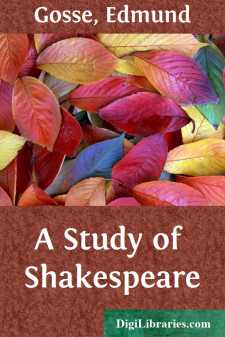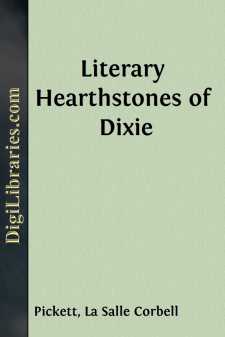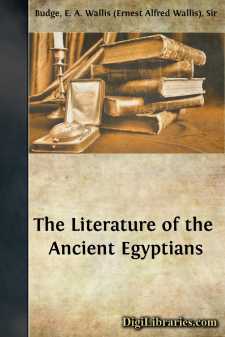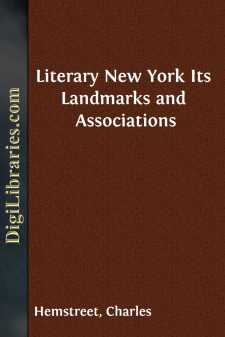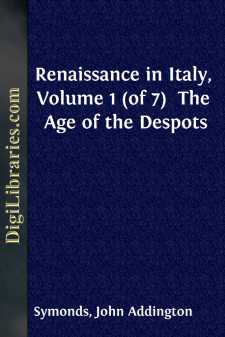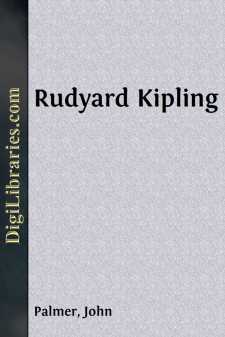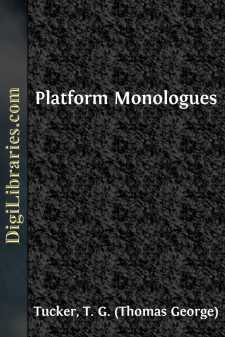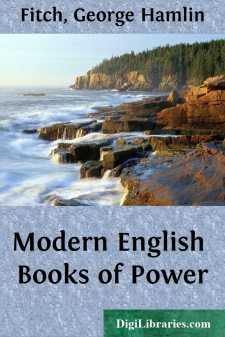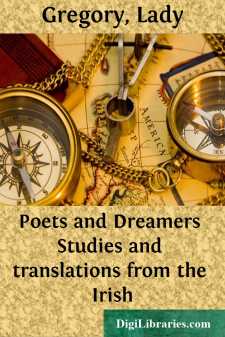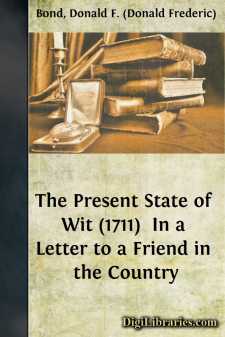Literary Criticism
- American 18
- Ancient and Classical 3
- Asian 1
- Australian & Oceanian 1
- Books & Reading 8
- Caribbean & Latin American 2
- Drama 2
- English, Irish, Scottish, Welsh 49
- European 7
- General 37
- Horror 1
- Humor 2
- Jewish 2
- Medieval 2
- Middle Eastern 3
- Poetry 7
- Renaissance 6
- Russian & Former Soviet Union 1
- Shakespeare 27
Literary Criticism Books
Sort by:
by:
Edmund Gosse
I. The greatest poet of our age has drawn a parallel of elaborate eloquence between Shakespeare and the sea; and the likeness holds good in many points of less significance than those which have been set down by the master-hand. For two hundred years at least have students of every kind put forth in every sort of boat on a longer or a shorter voyage of research across the waters of that unsounded...
more...
"THE POET OF THE NIGHT" "I am a Virginian; at least, I call myself one, for I have resided all my life until within the last few years in Richmond." Thus Edgar A. Poe wrote to a friend. The fact of his birth in Boston he regarded as merely an unfortunate accident, or perhaps the work of that malevolent "Imp of the Perverse" which apparently dominated his life. That it...
more...
CHAPTER I THOTH, THE AUTHOR OF EGYPTIAN LITERATURE.WRITING MATERIALS, ETC. The Literature of ancient Egypt is the product of a period of about four thousand years, and it was written in three kinds of writing, which are called hieroglyphic, hieratic, and demotic. In the first of these the characters were pictures of objects, in the second the forms of the characters were made as simple as possible so...
more...
Chapter IWriters of New Amsterdam THERE is a fashion nowadays of trimming the fronts of brick houses by placing black bricks among the red in such a way as to form odd and unique designs. It is an attractive way of doing, for it varies the staid simplicity of the solid color. But for all it may seem original and new, it is a style that had its beginning long, long ago, even in the days when the...
more...
CHAPTER I. THE SPIRIT OF THE RENAISSANCE. Difficulty of fixing Date—Meaning of Word Renaissance—The Emancipation of the Reason—Relation of Feudalism to the Renaissance—Mediæval Warnings of the Renaissance—Abelard, Bacon, Joachim of Flora, the Provençals, the Heretics, Frederick II.—Dante, Petrarch, Boccaccio—Physical Energy of the Italians—The Revival of Learning—The Double...
more...
by:
John Palmer
I There is a tale of Mr Kipling which relates how Eustace Cleever, a celebrated novelist, came to the rooms of a young subaltern and his companions who were giving an account of themselves. Eustace Cleever was a literary man, and was greatly impressed when he learned that one of the company, who was under twenty-five and was called the Infant, had killed people somewhere in Burma. He was suddenly...
more...
The Supreme Literary Gift When we have been reading some transcendent passage in one of the world's masterpieces we experience that mental sensation which Longinus declares to be the test of true sublimity, to wit, our mind "undergoes a kind of proud elation and delight, as if it had itself begotten the thing we read." We are disposed by such literature very much as we are disposed by the...
more...
Introduction My aim in this little book has been to give short sketches and estimates of the greatest modern English writers from Macaulay to Stevenson and Kipling. Omissions there are, but my effort has been to give the most characteristic writers a place and to try to stimulate the reader's interest in the man behind the book as well as in the best works of each author. Too much space is devoted...
more...
by:
Lady Gregory
RAFTERY I. One winter afternoon as I sat by the fire in a ward of Gort Workhouse, I listened to two old women arguing about the merits of two rival poets they had seen and heard in their childhood. One old woman, who was from Kilchreest, said: 'Raftery hadn't a stim of sight; and he travelled the whole nation; and he was the best poet that ever was, and the best fiddler. It was always at my...
more...
INTRODUCTION Gay's concern in his survey of The Present State of Wit is with the productions of wit which were circulating among the coffee-houses of 1711, specifically the large numbers of periodical essays which were perhaps the most distinctive kind of "wit" produced in the "four last years" of Queen Anne's reign. His little pamphlet makes no pretence at an analysis of true...
more...


